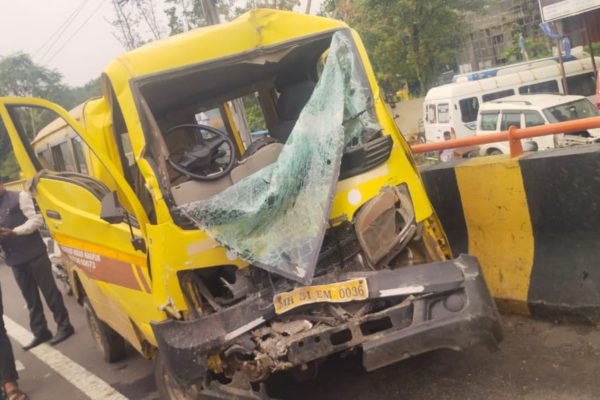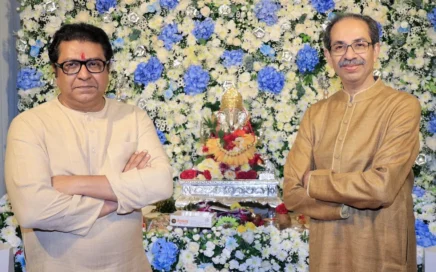
In the morning, a school van from Bhavan’s Koradi Road branch collided head-on with a school bus belonging to Narayana Vidyalayam. The crash occurred on the descending slope of the flyover, where traffic is already restricted due to ongoing repair work.
The collision left five students injured, with one girl critical and admitted to the ICU. The van driver, identified as Hrithik Kanojia (24), succumbed to severe head and abdominal injuries at Indira Gandhi Government Medical College & Hospital (IGGMC). Traffic remained disrupted for nearly an hour following the incident.
The Bigger Question: Who is Responsible?
This heartbreaking incident has reignited debate over who should be held responsible when children’s lives are put at risk during daily commutes.
- Schools without proper transport systems
Many schools in Nagpur and across India still do not operate their own dedicated school buses. Instead, they allow private vans to ferry children. Unlike standard school buses, these vans often lack mandatory safety features such as speed governors, GPS tracking, and trained drivers under school supervision. While schools charge hefty fees, questions arise: Why do some institutions not invest in student transportation infrastructure? - Parents opting out of school buses
On the other side, many parents knowingly choose private vans or pooled vehicles to save on costs or for convenience. However, these vehicles are often driven recklessly, overloaded, and without proper monitoring. Parents too must ask themselves: Is saving a little time or money worth risking a child’s life? - The need for regulation and accountability
School buses are required to follow strict safety norms, including CCTV, GPS systems, and designated speed controls, allowing both schools and parents to track real-time movement. Private vans rarely follow these protocols. Shouldn’t schools be made accountable if they outsource or allow unsafe alternatives? And shouldn’t parents be held equally responsible for bypassing safer options?
A Wake-Up Call for Nagpur
Today’s accident is not just a tragedy but also a warning bell. If schools continue to prioritize profits over safety and if parents continue to take risks with unregulated private transport, such incidents will repeat.
Lives of children are too precious to be compromised. Authorities must ensure strict enforcement of transport norms, schools must take ownership of student safety beyond classroom walls, and parents must choose responsibly.
This accident should serve as a turning point in how we look at student safety in daily commute. The questions must be asked, and accountability must be fixed – before more young lives are lost on Nagpur’s roads.














